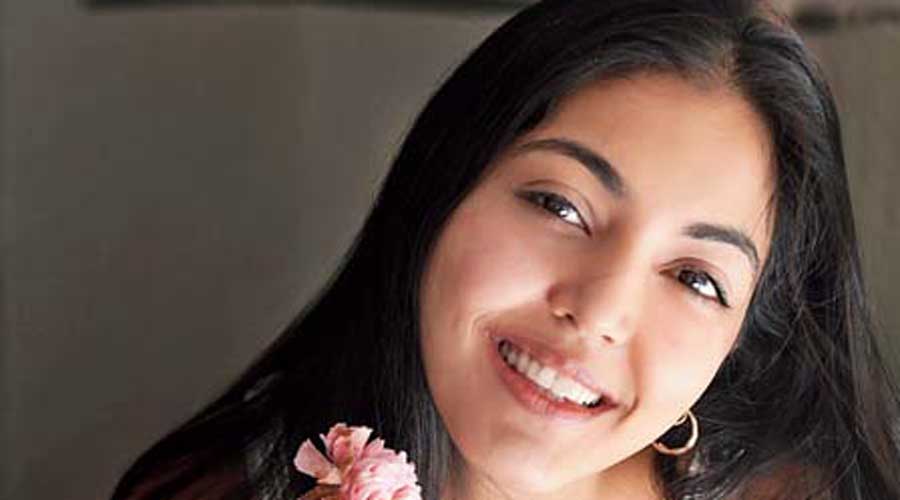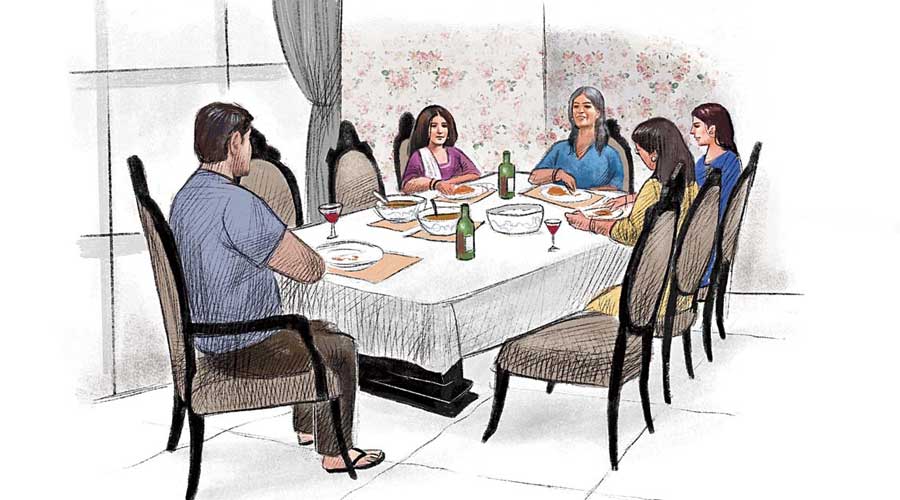Recap: Raahi and her daughters move into Aparna’s house at her request upon their return to Bombay, but things start souring up badly once Maahir’s son Azaan gets into the picture.
“Do not unpack,” she said. “We are not staying.”
“Zaara,” Seher began.
“No, don’t baby me,” Zaara growled. “Did you see that? Did you see the way he looked at Ma? Something is wrong with that dude and there’s absolutely no need for us to stay here and bear the brunt of 20 years of daddy issues. We’re not that broke.”
Seher looked to her mother for some help but Raahi seemed to be rethinking the decision to live with the Khans herself. Seher would have to exert rationalism now, before they decided to blow through their savings to save their pride. Someone had to be an adult.
“We can’t afford to move into a hotel at the moment.”
“We can move somewhere else,” Zaara pointed out.
“Nowhere as comfortable as this,” Seher said gently, “not for two whole weeks, not on our budget. I know you hate to hear it, but we have to start being smart about money.”
“The smart thing would have been NOT coming to Bombay till the house was ready to be moved into.”
“We had to be here to oversee the painters and the plumbers and the furniture being moved in,” Seher reminded her calmly. “It was lucky that Aparna offered us a place to stay when she did.”
“Lucky!” Zaara laughed bitterly.
“Zaaru!”
But her sister just shook her head and screwed her eyes shut, not wanting to believe any of it. “Can we just go back? Please?”
Seher said nothing. She was aware that it wasn’t anyone in the room her sister was pleading with now.
“Please. Please. Please,” and the proud girl, who had refused to indulge in tears all this while, began to sob. To Zaara, not having money wasn’t nearly as bad as not having pride. And this was the first time hers had been slighted.
Raahi exhaled, finally pulling herself together, and wrapped her arms around her youngest daughter, holding on to her for strength. “We will go back,” she said, “I promise you someday soon we will.”
Seher bit her lip, wishing her mother wouldn’t promise things they no longer had any control over. But Zaara’s colour was returning with every false hope that Raahi shone on her. Seher remained silent. She wouldn’t be the cloud of logic that dampened their spirits.
“For now, we must make the best of things, okay my love? And the best way to deal with a bad time is to go on living with dignity. With joy in spite of it.”
“Never let them see you hurt,” Seher whispered, in unison with her mother. It was the only diktat of Maahir’s she believed in. Her father may have been a cheat, a manipulator and, in his death, a scrooge. But he was correct about this. The only way to survive defeat was to not let the victors triumph in your humbling.
Zaara’s eyes opened, bright blue and wet with tears, but she braced herself and nodded.
“This is temporary,” she said, regaining her composure.
“Exactly,” her mother agreed, with a stubborn tilt of her chin.
Seher sent up a prayer of gratitude, to nobody in particular, for the little mercy of wishful thinking.
Perhaps fancy would serve them in want as much as it had in wealth.
***
To her credit, Aparna tried her best to make the conversation flow as freely as the wine at dinner, by asking the girls several questions and Raahi not a single one. Seher hoped her mother wouldn’t take offence at this. It was the only way to avoid the awkward pauses that resulted from Raahi’s accidental yet inevitable mentioning of Maahir. But from the sullen way Raahi was breaking her pao into little crumbs scattered across her thali, it was clear that she was miffed at being so obviously overlooked.
Azaan also sulked through Aparna’s discovery of Seher and Zaara’s favourite books, past-times and foods, but unlike Raahi, who hadn’t touched her food.
Azaan expressed displeasure by devouring the mutton and buttered paos on the table with the excessive eagerness of a lion at feeding time at the zoo. Even the cook, Ali saab, seemed surprised by Azaan’s appetite this evening when he appeared to ask them if the food was to their satisfaction. Both Zaara and
Seher had to restrain their eyebrows from rising as the ancient chef noted with pride that the keema must be very well spiced this evening. Usually chhote saab was very particular about his diet, but today he had put away 10 paos! Very good!
To which Azaan only responded by way of an irritated grunt.
Aparna glanced at her son once, but continued anyway, with the determined cheer of one who has had to be determinedly cheerful for decades.
“Seher beta, I hear you studied at Oxford?”
Across from Seher, Zaara was shoving bits of tofu keema into her napkin and chewing on her own cheeks in what could only be described as overacting.
“I did,” Seher said brightly, to keep their hostess’ focus off her pouting mother and pantomiming sister. “I did my Masters there too. In education. It was very enjoyable.”
“I’m sure it was,” Azaan muttered, grabbing another pao from the tray and tearing into it.
Raahi put her pao down, irritated. If Azaan wasn’t going to keep quiet anymore, nor was she.
“Seher enjoyed it because she is a good student,” she retorted, “I’m sure anybody else would have found the course load incredibly tough.”
“I’m not surprised,” Aparna intervened, injecting even more warmth in her tone. “Your father often talked about what a brilliant girl you are.”
Seher’s eyes widened at this. She didn’t know Maahir thought about her at all. Much less boasted of her. Zaara and Raahi both smiled at her as if to say ‘Of course’.
“Baba... spoke to you about me?”
“Very often,” Aparna said, but she avoided looking directly at Seher now and occupied herself with uncorking another bottle of Bordeaux.
“Ma?” Azaan asked, in a worried whisper.
It was the first time Seher had heard his voice drop to that gentle decibel.
The bottle popped open and Aparna grinned, ignoring her son. She poured wine into her glass with relish and then raised the bottle in offering to her guests.
“Uh, no thank you,” Raahi said, covering her glass with one hand, gold bangles clinking as she did. “The girls have had enough too.”
Azaan glared at the women before him now. He hadn’t drunk a drop of wine, but clearly he had also had enough.
“No problem,” Aparna shrugged and took a big gulp of her own glass. “What were we talking about?”
“Seher’s brilliance,” Azaan spat.
Seher flinched. So far she had been doing a good job of not thinking of... stuff; of ignoring Azaan’s nastiness; of not giving him the satisfaction. But now, she was as tongue-tied and dry-mouthed as she had been at the age of eight when his friends had cut off her braid and stapled her fingers.
Seher clutched at her dinner napkin. She hadn’t meant to remember.
“It’s a worthy topic. An exhaustive one, in fact,” Zaara replied, glaring at Azaan. “She has two degrees from Oxford. And she runs an internationally recognised charity.”
“Ah yes!” Aparna exclaimed, taking another gulp of her wine. “I read all about it in Vogue! What is it called?”
A twinge went through Seher. She focused on the feeling of the soft fabric in her hand. Her breathing slowed.
“Stand Up,” Seher managed, evenly, trying to keep her gaze off Azaan.
“It was an alternative school for victims of bullying,” Zaara announced. “And it was very cool.”
Azaan scoffed.
Raahi kicked her youngest daughter’s leg under the table and Zaara, who was about to launch into a hot defence of Stand Up, broke off. She followed Raahi’s gaze, beneath the table and tried not to look shocked.
For the first time since she was eight, Seher had begun to sweat through the silk of her dark pink kurta.
(To be continued)

Riva Razdan is a New York University graduate and currently working as a screenwriter and author based in Mumbai. Her debut novel Arzu was published by Hachette India in 2021











